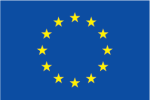What should you do if you as a student know that another student has cheated with an assignment? In the traditional literature on student integrity, the answer is clear: The only morally right thing to do is to tell the teacher. We all have an obligation to fight dishonesty, and if students report each other, it will be much more difficult to get away with cheating.
However, students are very reluctant to report peer dishonesty. According to the literature this reluctance is caused by fear of retaliation from other students and by misguided camaraderie. Further, according to the literature, the solution it to promise anonymity or to introduce honor codes specifying obligations towards the institutions.
As part of INTEGRITY we interviewed a total of 72 upper secondary, bachelor and Ph.D. students. In the interviews we touched upon the problem of reporting fellow students. The interviews clearly confirm that students on all levels are reluctant to report their peers. However, the students gave more complex reasons for not reporting than the literature suggests.


Leave a Reply